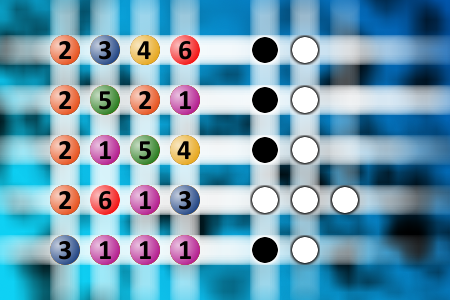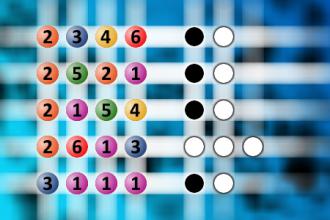What a winning combination?
The computer chose a secret code (sequence of 4 digits from 1 to 6). Your goal is to find that code. Black circles indicate the number of hits on the right spot. White circles indicate the number of hits on the wrong spot.Correct answers: 24
The first user who solved this task is Djordje Timotijevic.
#brainteasers #mastermind

A young man was walking throug...
A young man was walking through a supermarket to pick up a few things when he noticed an old lady following him around. Thinking nothing of it, he ignored her and continued on. Finally he went to the checkout line, but she got in front of him. "Pardon me," she said, "I'm sorry if my staring at you has made you feel uncomfortable. It's just that you look just like my son, who just died recently." "I'm very sorry," replied the young man, "is there anything I can do for you?" "Yes," she said, "As I'm leaving, can you say 'Good bye, Mother'? It would make me feel so much better." "Sure," answered the young man.
As the old woman was leaving, he called out, "Goodbye, Mother!" As he stepped up to the checkout counter, he saw that his total was $127.50. "How can that be?" He asked, "I only purchased a few things!" "Your mother said that you would pay for her," said the clerk.
As the old woman was leaving, he called out, "Goodbye, Mother!" As he stepped up to the checkout counter, he saw that his total was $127.50. "How can that be?" He asked, "I only purchased a few things!" "Your mother said that you would pay for her," said the clerk.

